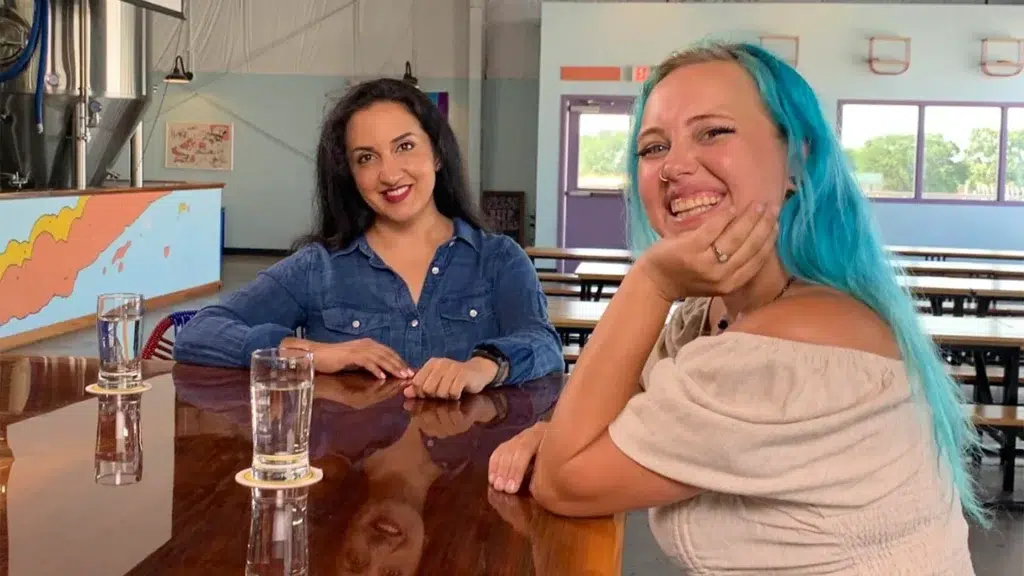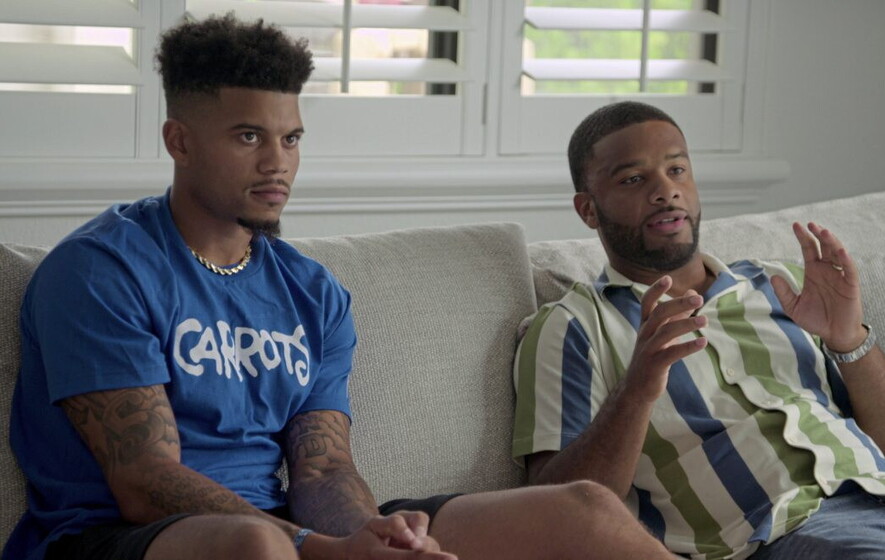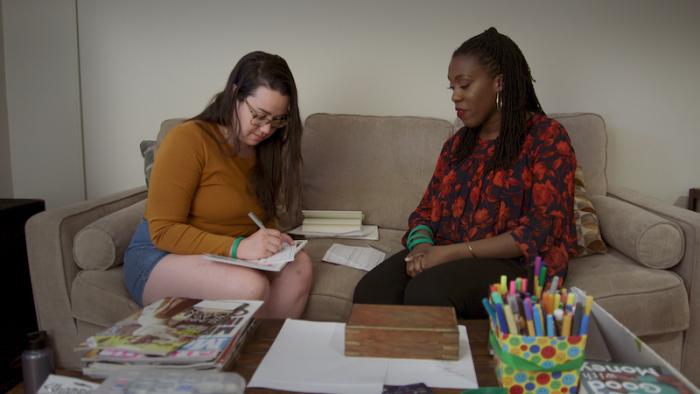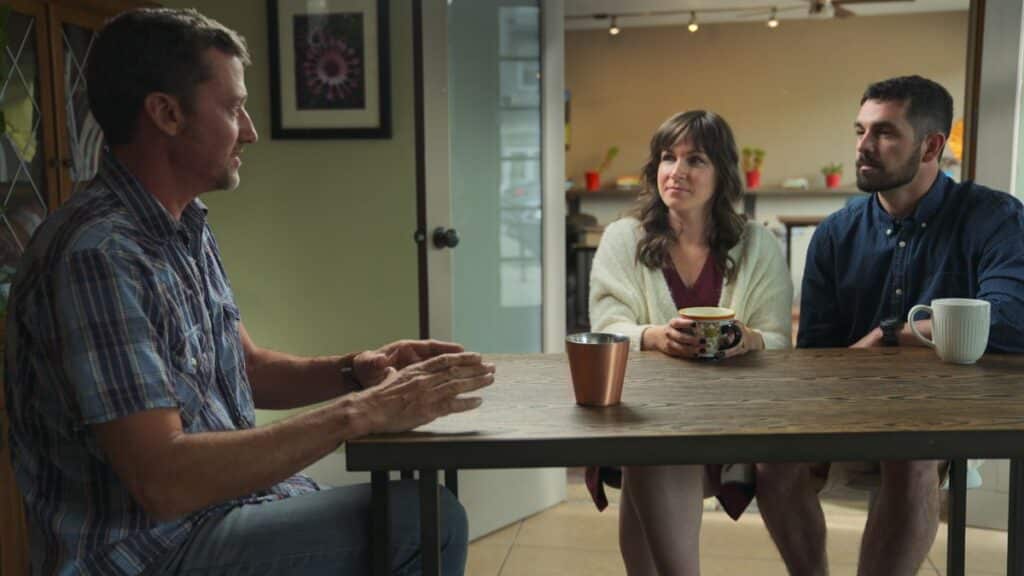As the famous motivational speaker Zig Ziglar once said, “Money isn’t everything …but it ranks up there with Air and Oxygen.” Therefore, it is refreshing to see Netflix release their recent documentary ‘Get Smart with Money’. In this article we’ve picked out 10 money lessons from the programme and how it equates to the UK market.
The Subjects
The documentary begins with introducing four subjects, Lindsey, Teez, Ariana and couple John and Kim. Each subject has a different financial goal. The programme then successfully pairs each of them with a well-known financial coach which follows the subjects progress over one year.

- Studied as a fashion designer.
- Working two jobs in hospitality.
- Lack of disposable income and doesn’t always cover her outgoings.
- Not following her dreams of becoming a fashion designer.
- Has mental health challenges and wants to purchase Health Insurance to support her. This is a common problem in the USA. In the United Kingdom we are lucky to be provided health cover via the NHS.
“The way that we manage our finances influences every aspect of our lives. Yet nobody ever formally teaches us about money.”
Paula Pant
SUBJECT TWO – Jalen ‘Teez’ Tabor
PAIRED WITH – R0$$ Mac (Ross Mcdonald)
FINANCIAL GOAL – Start investing

- Is an NFL American Footballer.
- African American and comes from poverty.
- First contract with the Detroit Lions was for a whopping $1.6 million.
- Purchases his Mum and himself a house, some jewellery, and holidays.
- From his original $1.6 million earnings, his bank balance is now down to around $200K.
- He subsequently gets injured and is released by the Detroit Lions.
- Without an income, and the prospect of never being signed by an NFL side again, Teez recognises that he needs a plan B.
“For me it was always black wealth matters. The way I do this is through information and educating the community [about money].”
Ro$$ Mac
Lorem ipsum dolor sit amet, consectetur adipiscing elit. Ut elit tellus, luctus nec ullamcorper mattis, pulvinar dapibus leo.

- First person in her family to go to college.
- Has student loans of $108,000.
- Emotional purchaser and has credit card debts of nearly $40,000.
- In a relationship and has two children.
- Her debts are causing her a significant amount of stress and prohibiting her and her family from experiencing their dreams.
“I really focus on the fundamental money lessons; budgeting, saving, credit, debt and learning to earn.”
Tiffany Aliche
SUBJECT FOUR – Kim and John
FINANCIAL GOAL – Attain Financial Freedom and Retire early
PAIRED WITH – Pete Adeney Mr Money Mustache

- Earn a decent income
- Engineer John became a stay-at-home Dad after he lost his job because of COVID.
- Fortuitously, this allowed Kim to throw herself into her job as a Psychotherapist and Woman’s empowerment coach. Her company grew quickly.
- Kim’s income increased from $70,000 to $300,000 a year.
- Every time they earn more money, they spend more money.
- Want to become more frugal to meet their goals but feel they need help to do so.
“You can buy freedom with money where you don’t have to worry about money again. But that’s not what we’re trained to do.”
Pete Adeney ‘Mr Money Mustache’
10 Money Lessons from Netflix 'Get Smart with Money'
We have selected 10 money lessons from the Netflix documentary. We believe these money lessons are essential to setting you on your own path towards Financial Freedom:
- Select the right adviser for you
What becomes evident, as the Netflix documentary evolves, is that the makers have carefully matched the subjects with their selected financial expert. This is an important lesson for anybody seeking support from a financial expert, (whether it be advice, coaching or investing). Entering a relationship with a financial expert is a partnership and the decision should not be taken lightly. - Invest in yourself
Surprisingly, the best investment you can make is to invest in yourself. It is therefore heartening that the documentary opens with a black screen and white text quoting Warren Buffett’s mentor Benjamin Graham. “An investment in knowledge pays the best interest.” Generally, an investment in yourself gives you the best opportunity to progress in your career and increase your earning potential. - Be more frugal
In John and Kim’s case, financial coach Pete Adeney focuses on the areas Kim and John can cut back. Shockingly, Kim and John spend a huge $1,800 a month on groceries. This is immediately one area they can reduce costs. Subsequently, Kim and John assess all areas of their lives and start making significant savings. As the show evolves it becomes obvious that they’re not going to attain financial freedom by their target date. They therefore decide to take drastic measures, and they downsize their home. This dramatically propels them closer to their target dates and frees up other outgoings to invest the surplus. Coming back to Lindsey, Paula Pant explains that the average American spends most of their hard-earned income on three things. 1. Food, 2. Housing, and 3. Commuting. Similarly to the USA, this is also true in the UK. One of the biggest areas we see individuals wasting money is on food. It’s understandable, because life is busy and the convenience of purchasing take-aways for lunch and dinner has become too easy. However, doing a weekly food shop, and batch cooking and just two ways individuals can make huge savings. - Develop a side hustle
My favourite subject in the documentary is Lindsey. Lindsey is an aspiring fashion designer who is not pursuing her dreams. Consequently, she has mental health challenges. This is compounded because her current job doesn’t always pay enough to cover her needs. Paula Pant (financial coach) tunes in quickly to the fact that Lindsey is a talented lady, and there is an opportunity to monetise her artistic talents with a side hustle. Lindsey loves dogs and has previously made additional income from dog sitting and walking. Paula comes up with a fantastic idea for Lindsey of going to parks, sketching people’s dogs, and then giving the dog owners the sketch with her number at the bottom for dog walking and dog sitting services. Whilst this isn’t exactly the golden ticket for Lindsey to start earning a lot more, it does start engaging Lindsey with her passion again. - Decisive action will bring opportunities
Continuing with Lindsey, because she is now engaged with her passion again, it’s amazing to see how opportunities start to arise through the episode. In addition to the sketching of dogs, she also does her first art fayre, where she monetises her artwork by selling prints. Moving forward to month six in the documentary, she has now been offered a lucrative deal to paint eleven murals around the city. It’s an amazing lesson how opportunities will arrive when you take positive action with something you love. - Develop a spending system
One of the money lessons for two of the subjects, Ariana and couple Kim and John is to focus on developing a spending system. This is an essential part of behavioural finance because it leads an individual from making unconscious impulsive decisions to making conscious decisions. There are two different systems promoted in the documentary which are designed by financial coach Pete Adeney and Tiffany Aliche. A system that we promote with our Financial Education presentations is a Japanese method called Kakebo and it provides a helpful visual for spending decisions. - Automate healthy money decisions when possible
Whilst having a system is important, the brain can still hijack you into making poor decisions. This is understandable because in our consumer world we’re driven towards purchases which provide a dopamine hit of happiness. Afterwards, buyer’s remorse then sets in. A great way to manage this is to automate healthy decisions. Paula Pant helps Lindsey to think about this by suggesting she segregates her income the day she gets paid, so liabilities are ringfenced. In the UK, this option has become much more accessible by using online banks such as Starling ‘Spaces’ or Monzo ‘pots’. - Develop a healthy relationship with money
It’s clear from subject Ariana’s case that she has an unhealthy relationship with money. As a result, she has had years of habitually making poor money decisions and this has led her into a mindset of scarcity and not abundance. Because of Ariana’s level of debt, it’s difficult for her to change this relationship but Tiffany emphasises to Ariana the importance of changing her relationship with money, and by giving her a spending system, this starts to help her change her mindset to see a way out of her predicament.
- Play the long game
Everybody wants a get rich quick scheme, but the facts are, whether it be clearing debt, or investing for the future, patience is required. Ross Mac explains to Teez that to build his investments, he must start investing now and remain invested for a long period of time. He uses the example of one of the world’s richest men Warren Buffett who is an advocate of ‘value investing’. This is also relevant to point 10 below. Ariana has racked up significant debts but after a year of changing her behaviours, she has managed to reduce her debt significantly. There is still a lot of work to be done and it will take a few more years to clear her debt on the proviso Ariana continues her healthy spending behaviours. - Invest regular contributions (pound cost averaging)
Ross Mac explains to Teez Tabor the importance of investing monthly into collective investment funds or directly into stocks and shares. The show does not, however, specifically explain why regular contributions can be effective. There are a couple of reasons monthly contributions may be effective. 1. A regular contribution helps the individual develop a healthy saving habit. 2. The individual may benefit from something called ‘Pound cost averaging’. There are pros and cons to pound cost averaging, but for many individuals, the benefit of smoothing the returns for an investment that moves up and down can be more bearable.
Summary
It’s great to see Netflix’s Get Smart with Money raising awareness about Financial Education. The documentary does a good job in educating the viewer about some core money lessons. At the end of the documentary, all subjects have made significant in-roads to meeting their financial goals.
Whilst the money lessons may seem basic for many viewers, it’s nice to see that the show doesn’t bamboozle viewers with complex investment theories or economics. The documentary focuses on the financial basics. More importantly, the show does a good job in effectively explaining the importance of developing good financial behaviours and developing a healthy relationship with money.
Financial Education
With the current increased cost of living affecting many families and individuals, we believe it is essential to support people with their Financial Wellbeing.
Whether you are looking for advice with your personal finances, or perhaps you run company and you want to provide resources to your employees, Bigmore Associates can help.
We can help with:
– Personal financial planning and management
– Pension review
– Investments
– Mortgages and protections
– Equity release
– Wills and LPAs
– Estate planning and inheritance tax
– Employee Benefits
– Payroll
– Financial Education Presentations
For more information about any of the above services, fill out the contact form below.
 Beat the NHS backlog – Group Private Medical Insurance
Previous post
Beat the NHS backlog – Group Private Medical Insurance
Previous post
